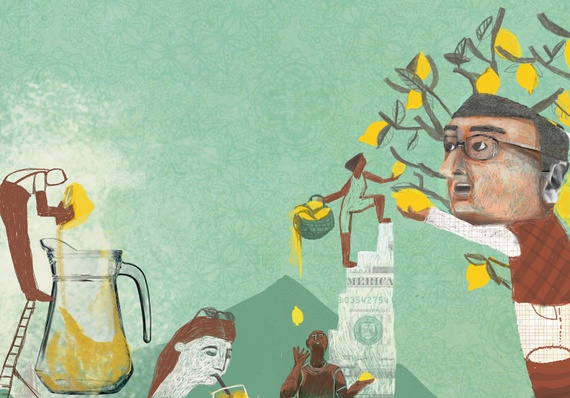AOL, Yahoo and many others made many of my friends happy when they bought their companies... Michael is one of them. He sold his tech startup, Bebo - an online social networking site - in 2008 to AOL for $850 million. Michael and his amazing wife, Xochi, co-founded over half a dozen startups in the past 15 years. But what is really interesting is what they did with their money. They've done a lot of good with it. They're not only supporters of charity:water, but have also helped launched mycharitywater.org, a fundraising platform that has raised more than $20 million for clean water projects around the world. What an incredible couple, and incredible team.
You and your wife have committed tremendous personal financial resources and time to increasing the access to clean and safe water. What inspired you to become involved with this cause?
Lack of access to clean water and sanitation is an issue that impacts 630 million people worldwide. It's one of the biggest inequalities that exists in the world today. In addition, it is almost always the women and the children who are responsible for fetching clean water, typically spending many hours a day doing so. Addressing this issue in a community has a transformative impact and is often the first step to breaking out of subsistence farming and improving education and health.
In your work to increase access to water, you've developed initiatives of your own in partnership with leading nonprofits like Charity Water and water.org. How was working entrepreneurially in the nonprofit sector compared with working entrepreneurially in the for profit sector?
The stock options are worthless! :) I think the answer to this question would really depend upon the individual organization. We were attracted to charity: water because they weren't like any other non-profit we knew of. They looked like and acted like a scrappy and innovative tech startup. They cared passionately about brand and design, before it was even hip in the valley. They welcomed new ideas that were outside of the norm. They weren't scared of failure. They hired really smart people and continued to evolve, bringing in the right people to address the challenges they faced. We know this is not common in the sector but we continue to seek out non-profits that share some of these characteristics. Likewise, water.org had complimentary innovative solutions to water issues in more urban settings. We're not interested in working with non-profits unless we feel they are seeking true innovation and disruption.
You're a prolific entrepreneur, having launched over a half dozen startups in the last 15 years. What is the biggest challenge that you've faced as an entrepreneur?
Talent. It's really hard to find exceptional people, and even harder to convince them that they should bet on you. Early on we did everything ourselves, to the point that it was clearly detrimental and holding back our growth. Over time, we've found and worked with some awesome individuals, and do our best to empower them to succeed alongside us.
It's amazing to see how you openly embrace the importance of failure in your successes. Why do you think it's necessary to communicate about failure as a successful entrepreneur?
All too often, the image of success is an overnight success. Although this can happen, it's incredibly rare, and of course lucky. You typically don't hear about someone until they ARE successful. The first thing you hear about them is their success, so it appears to have happened instantly for them. The real stories of entrepreneurs are often a number of failed companies, followed by years of struggle, and then finally, perhaps, success. Setting this expectation is important, all great entrepreneurs have one thing in common, they don't give up, they may move on, but they don't give up.
What is the greatest lesson you've learned so far as an entrepreneur?
The need for absolute focus. I like to be a Yes person, but I spend most of my time saying No to ideas and opportunities, which is a little depressing. It's simply impossible to do all the things I would like to do, so it is important to focus on opportunities with the highest probability of success.
Finally, do you think by doing good, you're more successful?
Traditionally philanthropy has often been about making money, retiring, and then giving some of it away, but often not until you die, kinda depressing. Philanthropy would almost always follow success. This is changing today, and as such can be intertwined with success itself. Some of the best for-profits, such as TOMS and Warbly Parker, have built philanthropy into their business models. In 2013, we opened a private members club in San Francisco, called The Battery; a year after opening, we launched a philanthropy program called Battery Powered which has since raised over $7m from members and made grants to over 25 non-profits. It was important to us that giving back was an integral part of the culture of The Battery. We did it because we felt it was the right thing to do, but for many members it's also their favorite aspect of the club.
Follow Alexandre Mars on Twitter: www.twitter.com/alexandremars

